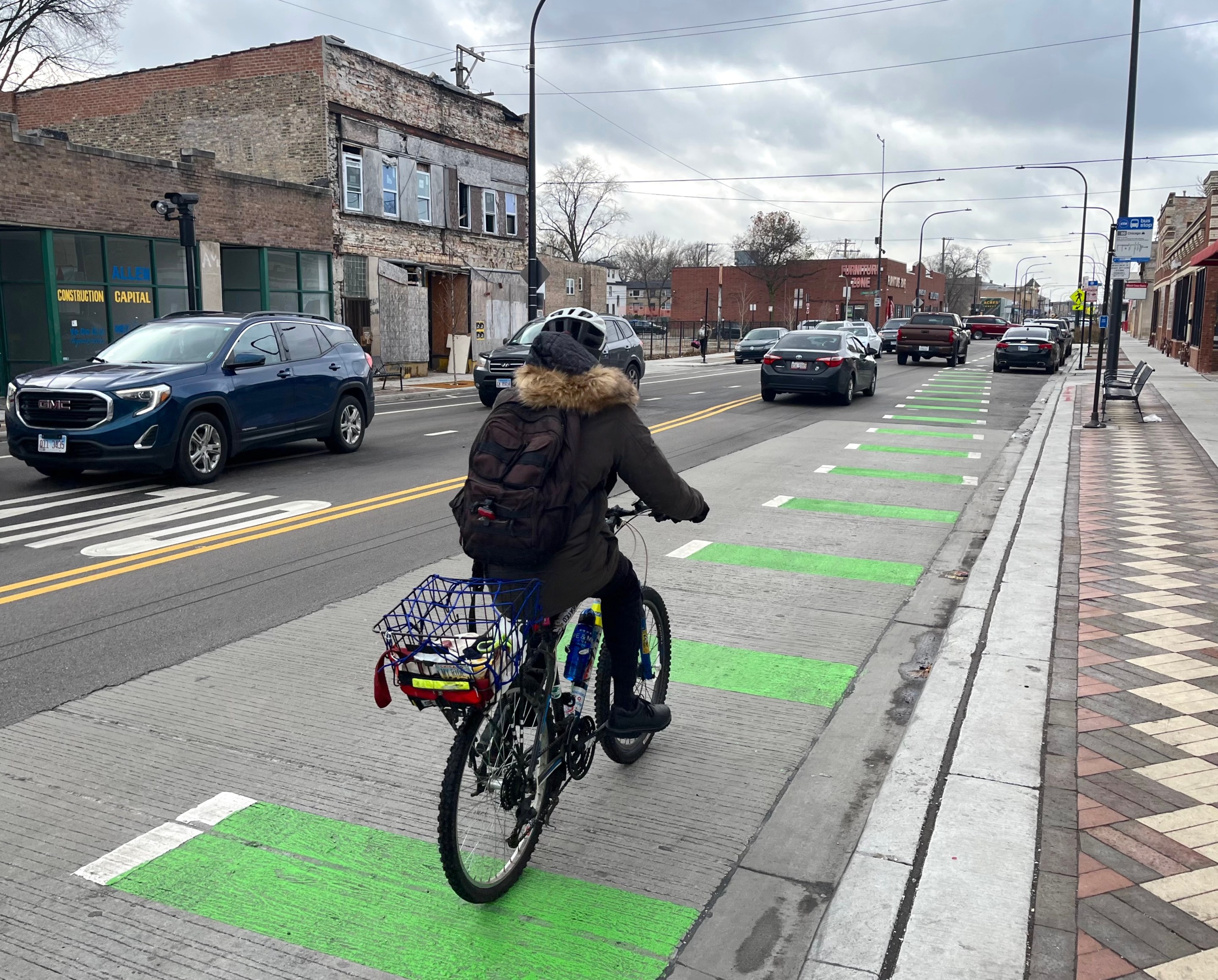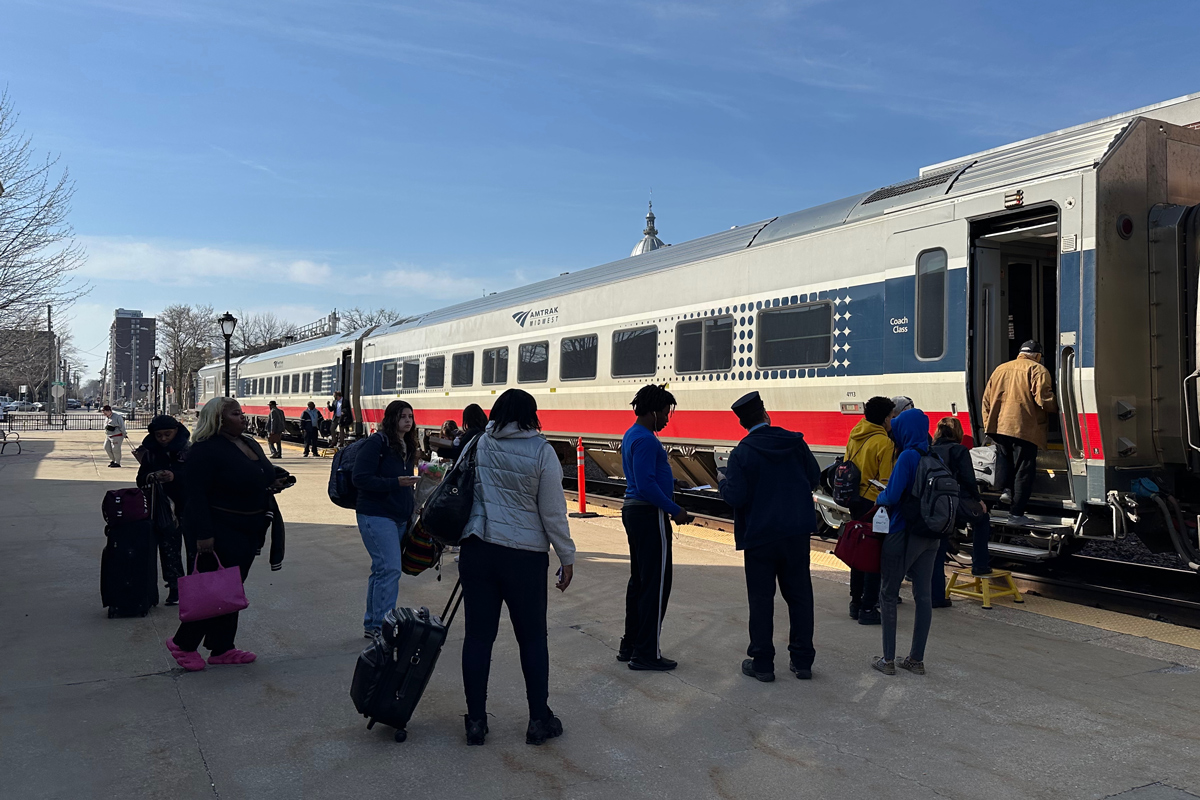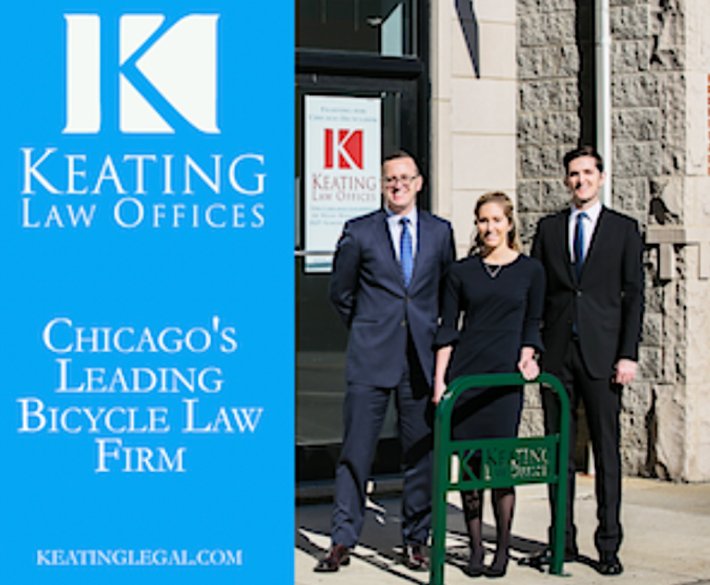
Streetsblog Chicago is a sustainable transportation news and advocacy website, not a publication that typically covers finance. So it's not really my role to opine on whether it was a smart fiscal decision for the City Council to approve an $830 million bond deal to pay for transportation infrastructure. But let's look at how the narrow 26-23 vote went down last Wednesday; some arguments against and for the financing by alders; and reactions from walk/bike/transit boosters.
According to a WTTW report by Heather Cherone, the ordinance passed thanks to support from every member of the Council's Progressive Caucus, plus all but four members of the Black Caucus. (These two factions were largely on opposite sides for the recent 28-21 vote against lowering our city's default speed limit to 25 mph, which data from peer cities suggests would save lives in Chicago.)
Supporters argued that the $830 million loan would be helpful to repair Chicago's deteriorating streets, sidewalks, and bridges, and create jobs. Black Caucus member Ald. Walter Burnett (27th) told WTTW that the South and West sides need money for infrastructure upgrades now, and it's going to be harder to get that from the federal government under Donald Trump. "This is very wise and very smart and very beneficial to make sure that we can self-sustain ourselves for the future for the infrastructure that we need," he said.
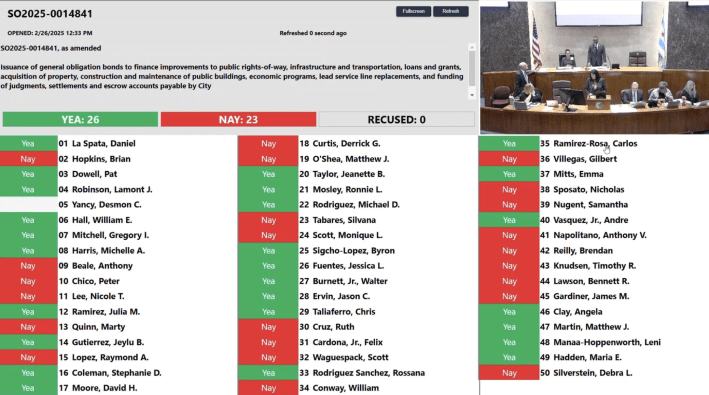
But opponents said that was a foolish strategy for a city that's already about a billion dollars in debt. One issue they cited is that for the next 20 years, Chicago won't even be required to pay down the principal of the loan, just the interest. According to the City's own projections, if the debt is paid off by 2055, it will cost taxpayers a whopping $2 billion. "If you find yourself in a hole, the first thing to do is to stop digging," Ald. Bill Conway (34th) said to Cherone. "This will place an enormous burden on future generations. We don’t have to mortgage our children’s future."
The loan will pay for the usual $1.5 million in discretionary "menu" funds each of the 50 alders receives each year to pay for infrastructure. The City is setting aside $115.5 million for streetscape projects. And $157.5 million is slated for funding Complete Streets projects, including pedestrian, transit, and bike facility upgrades. According to Block Club Chicago's Mack Liederman and Quinn Myers, the latter will include projects downtown and in Bright Park, Greater Grand Crossing, and Little Village.
Sustainable transportation-friendly Ald. Matt Martin (47th) is a member of the Black and Progressive caucuses who voted for the bond deal. He explained his reasoning in his newsletter, stating that he had mixed feelings about the legislation. "We all want City government to tackle our fiscal challenges head-on, and without kicking the can down the road to future generations," he said.
Ald. Martin explained that he only supported the ordinance after it was tweaked to make it clear the money could only be used for capital projects, not wages or salaries. (Mayor Brandon Johnson, who pushed for the loan, is a former employee of the Chicago Teachers Union, which helped fund his election campaign.) And Ald. Martin argued that the "annual payments can and should include paying down principal beginning the very first year of debt servicing, rather than punting principal payments decades into the future." He provided more details about his thought process, and 47th Ward repaving and stoplight projects the money would finance, in a "more detailed summary".
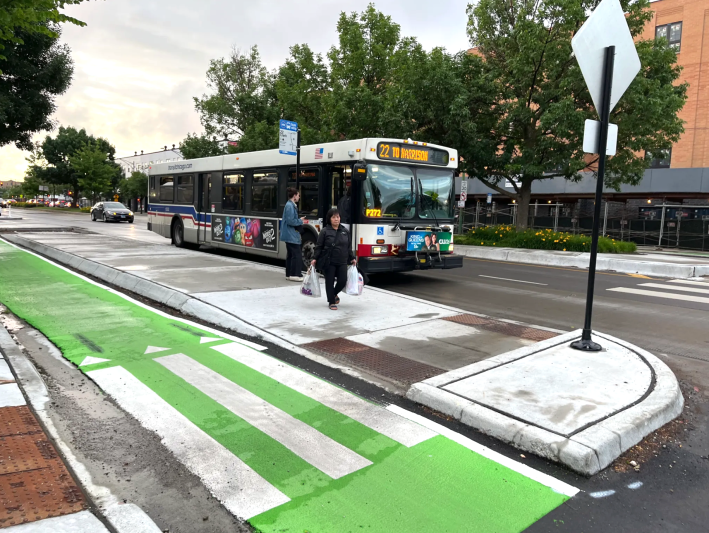
I reached out to several local sustainable transportation advocacy organizations to get their opinions on the bond bill. Those who responded generally weren't willing to talk on the record about whether the $830 million loan is a good idea in the long run. My sense was that, since the ordinance had already passed and it's such a controversial topic, they understandably felt it wasn't worth burning any bridges at City Hall by passing judgment.
On the other hand, Active Transportation Alliance spokesperson Ted Villaire suggested that setting aside a large sum of money for transportation projects has major upsides. "Chicago's $830 million infrastructure bond is a significant step forward for transportation, enhancing walkability, bikeability, and safety," he said. "By upgrading streetscapes and addressing high-risk intersections, the City will create more inviting streets while saving lives. This investment propels Chicago toward a more vibrant, sustainable future where residents can safely navigate on foot, by bike, and via transit."
A couple of local walk/bike/transit advocates were willing to voice opinions on the financing decision, although they emphasized that they weren't speaking on behalf of any transportation organizations they work with. "I concerned that [the bond bill] does not address our financially insolvent development patterns," said Carl Beien. "So long as we continue to restrict so much our zoning to low density housing and the multitude of other car-oriented development patterns, then we either need to raise taxes or let the roads that support them crumble. I am sensitive to the racist disinvestment in much of the city, but a proactive strategy to unwind the 'infrastructure Ponzi scheme' (as Strong Towns calls it) should be required before we make more investments - debt-supported or otherwise."
"All our big policy problems, which include inadequate bike infrastructure, will continue to be unresolved in any kind of intelligent way as long as we don't address our underlying governance issues," added Beien's colleague Nate Hutcheson. "Right now, we as a city should be pursuing a city charter so that the City Council can be oriented toward better problem solving and strategic planning. Chicago Growth Project, which is a [political action campaign] formed by bike and housing advocates, is taking the lead on getting this conversation going."
Those are compelling ideas to right Chicago's fiscal ship, certainly smarter than, say, ex-mayor Richard M. Daley's ill-conceived plan to balance the budget by selling off our city's parking meters for 75 years. But in the short term, perhaps we should be glad that there will be funding to make our transportation system safer, more efficient, and more equitable, which will also make our city more profitable and increase tax revenue. I suppose that beats losing sleep over who's going to have to start settling the bill 20 years from now.
Read the Block Club report here.

Did you appreciate this post? Streetsblog Chicago is currently fundraising to help cover our 2025-26 budget. If you appreciate our reporting and advocacy on local sustainable transportation issues, please consider making a tax-deductible donation here. Thank you!
